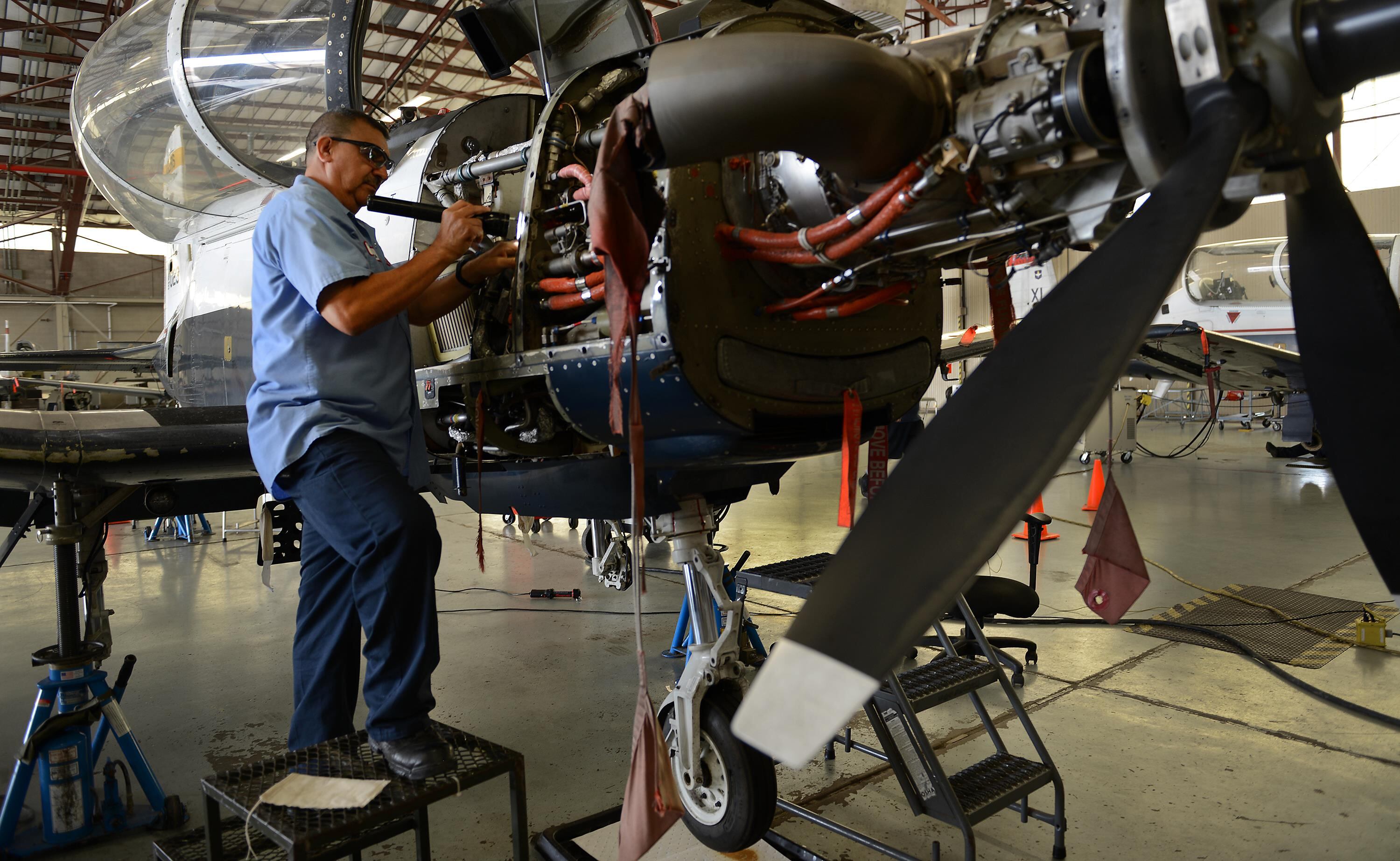The Air Force is trying to halt an increase in maintenance-related aircraft mishaps by putting new safety training and briefings in place for maintainers that the service says will now require those airmen to sign non-disclosure agreements, or NDAs, in the process.
An NDA is a legal contract that prevents the sharing of such information.
This is the first time all aircraft maintainers have received such mishap training, which contain more details on mishaps that the Air Force considers privileged information, necessitating the NDAs, according to Air Force officials.
Privileged information includes the factors and causes that led to a mishap, findings of an accident investigation and recommendations, Air Force spokeswoman Ann Stefanek said in an email.
The annual safety trainings and recurring briefings began in August, she said, after Air Force Chief of Safety Brig. Gen. Sean Choquette pushed for the change.
RELATED

It applies to all aircraft maintenance personnel that conduct hands-on maintenance of Air Force aircraft, including those in the Air Force Reserve and Air National Guard.
Air crews for years have had similar training and NDA requirements, Stefanek said, which has reduced mishaps and saved lives.
The beefed-up training and briefings will allow the Air Force to confidentially share the details on these accidents and quickly teach maintainers what lessons have been learned, Stefanek said.
Without the confidentiality provided by NDAs, Stefanek said, “we don’t quickly get to the root cause of a mishap, and mishap prevention is critical to mission readiness and our national security.”
But some critics worry that the NDAs could stifle the Air Force publicly acknowledging its mishaps.
The new NDAs first surfaced publicly on the unofficial Air Force amn/nco/snco Facebook page, which on Sept. 30 posted a screenshot of an Air Combat Command email instructing maintainers to sign an NDA by Oct. 11. That email said the spike in maintenance-related mishaps over the last two years has cost the Air Force more than $79 million.
Retired airman Steven Mayne, who runs the Air Force amn/nco/snco Facebook page and often posts news and submitted photographs of Air Force aviation mishaps shortly after they occur, fears the NDA requirement will lead to less public reporting of such accidents.
“Perhaps the Air Force wants to achieve a chilling effect [on public release] with NDAs, and is tired of accidents getting out with Congress, media and the public demanding answers,” Mayne said in an email.
The Air Force’s most serious aviation mishaps hit a five-year high in 2023, an Air Force Times analysis found earlier this year. That corresponded with a spike in maintenance-related accidents that have increasingly injured airmen on the job. Top Air Force officials have said pinning down the causes of the maintenance mishap increase has proven difficult.
Stefanek said no maintainers will be required to sign NDAs. But if maintainers do not sign the agreements, she said, they would not be allowed to access any privileged safety information “and would not be as fully equipped to help prevent mishaps and injuries.”
Before maintainers are asked to sign NDAs, Stefanek said, they are first trained on what privileged safety information is, and what their requirements are to protect it.
NDAs are already required for some other airmen to receive access to sensitive information, she said.
“This requirement is an effort to bring aviation maintainers into the same trusted fold [as aircrew] to prevent mishaps,” Stefanek said. “Without the ability to share what happened on a mishap, prevention doesn’t happen.”
Because aircraft maintainers have never regularly received this training, Stefanek said, this has created a “gap in our hazard and mishap mitigation effort.” In the past, such training has occurred at only the local level, making it hard to put the lessons learned in place across the entire Air Force.
Stephen Losey is the air warfare reporter for Defense News. He previously covered leadership and personnel issues at Air Force Times, and the Pentagon, special operations and air warfare at Military.com. He has traveled to the Middle East to cover U.S. Air Force operations.





